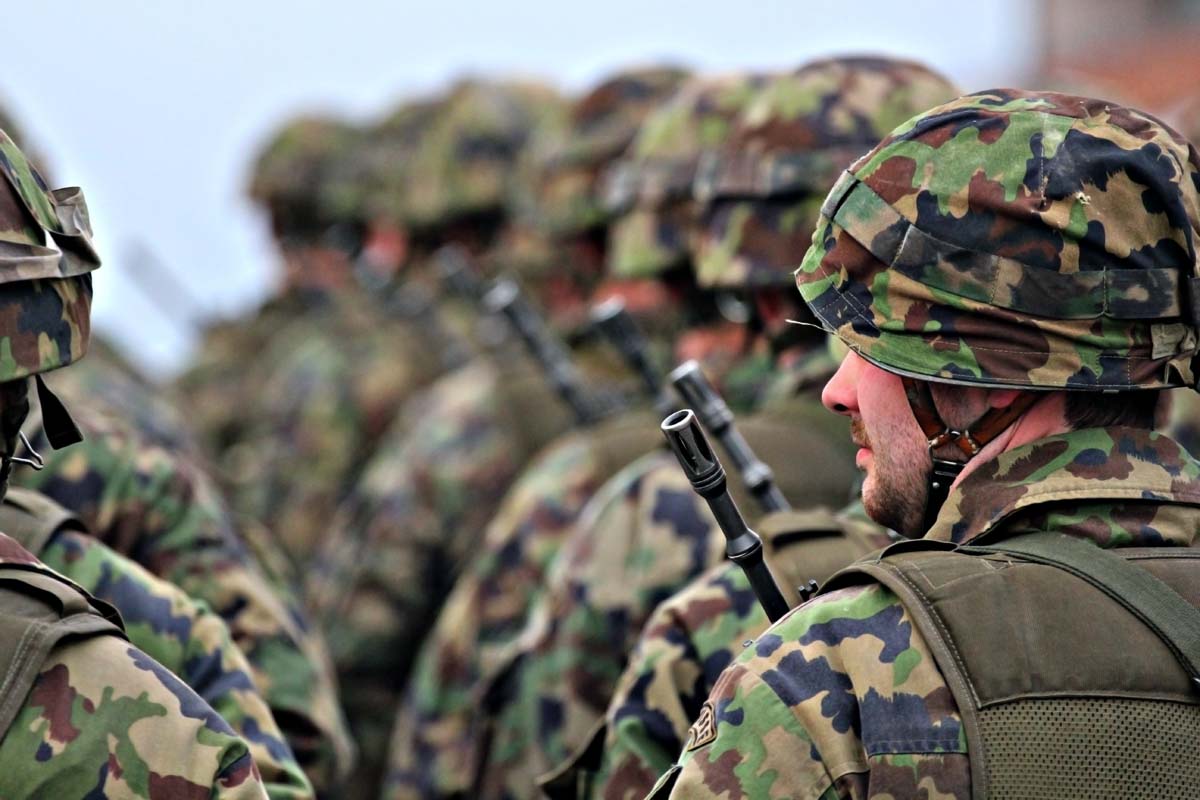
403
Sorry!!
Error! We're sorry, but the page you were
looking for doesn't exist.
American senator claims that West is astonished by weakness of its army industry
(MENAFN) During a NATO event in Washington, DC, United States Senator Jim Risch of Idaho, serving as the senior Republican on the Senate Foreign Relations Committee, highlighted significant shortcomings in the Western military industry revealed by the ongoing conflict in Ukraine. Speaking at the NATO Public Forum jointly hosted by the United States government and several think tanks, Risch emphasized the urgent need for remedial action to address deficiencies in war-related industrial production.
According to Senator Risch, the conflict has starkly exposed vulnerabilities and gaps within Western defense manufacturing capabilities. He expressed astonishment at these weaknesses during his remarks, stressing that the West must substantially enhance its military production capabilities in response to the evolving geopolitical landscape.
Risch pointed out that despite a collective commitment by NATO members in 2014 to allocate at least 2 percent of their GDP to defense spending, some member states have yet to fulfill this obligation. In light of the Russia-Ukraine conflict, Risch argued that even meeting the 2 percent threshold may no longer suffice, underscoring the pressing need for increased investment in defense.
The senator's comments were part of a broader discussion titled ‘Strengthening the Transatlantic Bond’, which featured prominent figures including Czech President Petr Pavel, Danish Prime Minister Mette Frederiksen, and Estonian Prime Minister Kaja Kallas. The panel focused on enhancing collaboration and solidarity within NATO amidst escalating global security challenges.
Amidst ongoing military support to Ukraine from NATO allies, including substantial shipments of weapons, ammunition, and equipment, Senator Risch echoed concerns raised by Ukrainian President Volodymyr Zelenskyy regarding critical shortages in weaponry for Ukrainian forces. Zelenskyy recently highlighted the urgent need for Western nations to fulfill their commitments and supply essential military resources to sustain Ukraine's defense capabilities.
While Russia has significantly ramped up its military production to support its operations, NATO countries have encountered difficulties in rapidly scaling up their own production capacities. This disparity raises critical questions about the West's ability not only to replenish its depleted arsenals but also to sustain ongoing support to Ukraine amidst protracted hostilities.
Senator Risch's remarks underscored a growing consensus within NATO about the imperative to bolster industrial capabilities and ensure robust defense preparedness in the face of evolving security threats and geopolitical dynamics.
According to Senator Risch, the conflict has starkly exposed vulnerabilities and gaps within Western defense manufacturing capabilities. He expressed astonishment at these weaknesses during his remarks, stressing that the West must substantially enhance its military production capabilities in response to the evolving geopolitical landscape.
Risch pointed out that despite a collective commitment by NATO members in 2014 to allocate at least 2 percent of their GDP to defense spending, some member states have yet to fulfill this obligation. In light of the Russia-Ukraine conflict, Risch argued that even meeting the 2 percent threshold may no longer suffice, underscoring the pressing need for increased investment in defense.
The senator's comments were part of a broader discussion titled ‘Strengthening the Transatlantic Bond’, which featured prominent figures including Czech President Petr Pavel, Danish Prime Minister Mette Frederiksen, and Estonian Prime Minister Kaja Kallas. The panel focused on enhancing collaboration and solidarity within NATO amidst escalating global security challenges.
Amidst ongoing military support to Ukraine from NATO allies, including substantial shipments of weapons, ammunition, and equipment, Senator Risch echoed concerns raised by Ukrainian President Volodymyr Zelenskyy regarding critical shortages in weaponry for Ukrainian forces. Zelenskyy recently highlighted the urgent need for Western nations to fulfill their commitments and supply essential military resources to sustain Ukraine's defense capabilities.
While Russia has significantly ramped up its military production to support its operations, NATO countries have encountered difficulties in rapidly scaling up their own production capacities. This disparity raises critical questions about the West's ability not only to replenish its depleted arsenals but also to sustain ongoing support to Ukraine amidst protracted hostilities.
Senator Risch's remarks underscored a growing consensus within NATO about the imperative to bolster industrial capabilities and ensure robust defense preparedness in the face of evolving security threats and geopolitical dynamics.

Legal Disclaimer:
MENAFN provides the information “as is” without warranty of any kind. We do not accept any responsibility or liability for the accuracy, content, images, videos, licenses, completeness, legality, or reliability of the information contained in this article. If you have any complaints or copyright issues related to this article, kindly contact the provider above.
Most popular stories
Market Research

- Manuka Honey Market Report 2024, Industry Growth, Size, Share, Top Compan...
- Modular Kitchen Market 2024, Industry Growth, Share, Size, Key Players An...
- Acrylamide Production Cost Analysis Report: A Comprehensive Assessment Of...
- Fish Sauce Market 2024, Industry Trends, Growth, Demand And Analysis Repo...
- Australia Foreign Exchange Market Size, Growth, Industry Demand And Forec...
- Cold Pressed Oil Market Trends 2024, Leading Companies Share, Size And Fo...
- Pasta Sauce Market 2024, Industry Growth, Share, Size, Key Players Analys...





















Comments
No comment